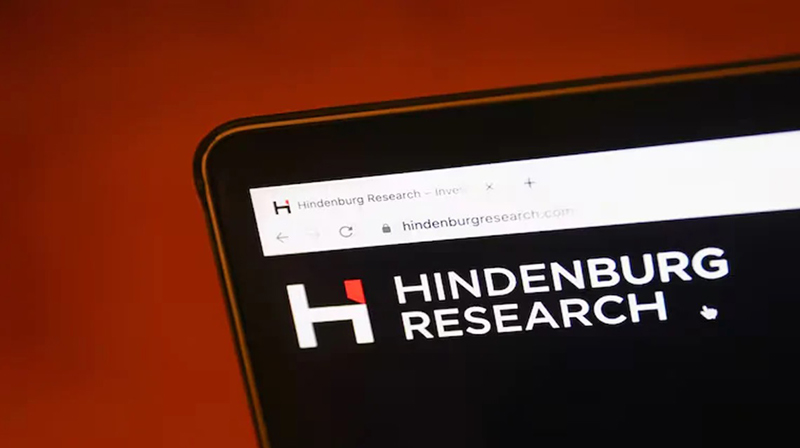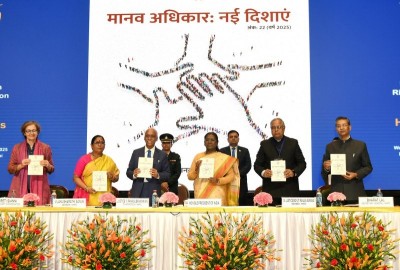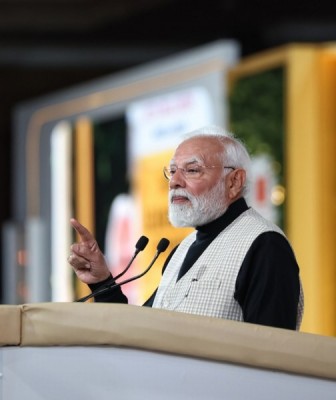 Hindenburg
Hindenburg
Hindenburg Report: Fiction masquerading as fact
The release of the latest Hindenburg Report yesterday has ignited a firestorm of controversy, targeting the Adani Group and raising serious concerns about the integrity of India’s financial markets.
This report, like its predecessors, is filled with sensational claims that have captured headlines around the world.
Yet, as we sift through the allegations, one must question whether this is a genuine attempt to expose wrongdoing or a calculated move to destabilize one of the fastest-growing economies in the world. The stakes are high, and the implications of this report reach far beyond the corporate boardrooms, potentially impacting India’s economic future and global standing.
As one carefully reads through the report, three things become glaringly obvious. First, there is a conspicuous absence of concrete evidence supporting the claim that the SEBI Chairperson, who is tasked with overseeing India’s securities markets, was involved in taking bribes.
The report appears to sensationalize routine investment instruments, twisting them into what seems like a plot out of a financial thriller.
The result is an impression of ill-gotten wealth, cleverly cloaked in opacity, but upon closer inspection, nothing more than an illusion crafted to sow distrust.
Second, the report attempts to spin the narrative that the mere existence of offshore entities is tantamount to criminal activity. This is a well-worn tactic, particularly when dealing with large multinational corporations, where offshore entities are often part and parcel of legal and legitimate global business strategies. Yet, the Hindenburg Report makes a clumsy leap, trying to connect dots that simply do not form a coherent picture. It insinuates wrongdoing without providing evidence that any decision or favor was given to the alleged beneficiary—the Adani Group. In fact, these claims have been recycled from previous reports, already scrutinized and debunked by the Supreme Court of India.
Third, the timing of the release of the report is something that deserves careful consideration. Just days after the chaotic events in Bangladesh, which led to the resignation of then-Prime Minister Sheikh Hasina, this report emerges from the US-based Hindenburg Research, raising questions about its timing and intent. The situation in Bangladesh has been rife with rumors and speculations, particularly on social media, where many have suggested that the United States played a role in the regime change.
Just yesterday, Sheikh Hasina accused the United States of plotting against her government, hinting that she was pressured to surrender Bangladesh’s sovereignty over the strategically significant Saint Martin Island in exchange for staying in power. In her letter, Sheikh Hasina expressed that she resigned to avoid further bloodshed, accusing external forces of wanting to seize control of the Bay of Bengal. This letter, had it been delivered, would have pointed fingers directly at the US for attempting to manipulate the political landscape of Bangladesh. Given this context, one cannot ignore the possibility that the sudden release of the Hindenburg Report may serve as a diversionary tactic—shifting the narrative away from the unrest in Bangladesh and redirecting global attention towards India. The implications of such a maneuver are profound, suggesting a broader strategy to destabilize the region by targeting its most influential nations.
No criminal court anywhere in the world would take such tenuous material seriously. The absence of solid evidence in the report renders it more akin to a work of speculative fiction than an exposé of corporate malfeasance. This brings us to a critical question: If the report lacks substantial proof, what is its true purpose?
With each passing day, the release of this report seems less about uncovering the truth and more about destabilizing India’s markets and undermining the country’s economic sovereignty. There is a growing suspicion that this report is part of a larger, more insidious campaign—a cabal operating both within India and abroad, with the aim of shaking the very foundations of India’s growth and stability. The timing and tenor of the report suggest an agenda that goes beyond corporate accountability and ventures into the realm of geopolitical intrigue.
India stands at a crossroads. On one hand, it is a nation poised for unprecedented economic growth, a key player on the global stage. On the other hand, it is a country beset by forces that seek to derail its progress for their own gain. In this context, the Hindenburg Report is not just an attack on the Adani Group; it is an attack on the credibility and resilience of India itself.
For the sake of democracy, and for the future of India, it is imperative that Indian investigative agencies approach this report with the seriousness it deserves.
Not as a matter of corporate inquiry alone, but as a national security concern. The real danger is not just in the allegations made, but in the shadowy motives that may be driving them.
(Image and text courtesy: Khalsavox.com)
Support Our Journalism
We cannot do without you.. your contribution supports unbiased journalism
IBNS is not driven by any ism- not wokeism, not racism, not skewed secularism, not hyper right-wing or left liberal ideals, nor by any hardline religious beliefs or hyper nationalism. We want to serve you good old objective news, as they are. We do not judge or preach. We let people decide for themselves. We only try to present factual and well-sourced news.







